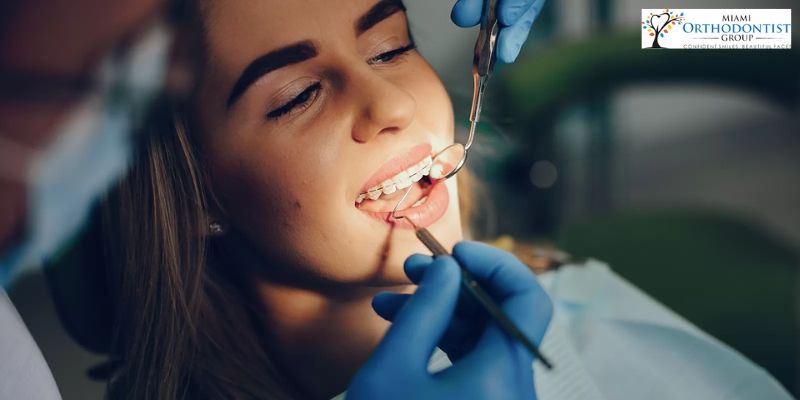Gum diseases, are not only appalling to look at, but they are also very painful and can cause sufferers to fall into depression. There is a great need to prevent and completely eradicate this dental dysfunction as more research about the disease keeps coming up. Gum disease occurs when the bone and tissues surrounding the gum begin to deteriorate due to infection.
Periodontitis is a more inflammatory gum disease than gingivitis. It affects the bones and gum surrounding the teeth and it does more harm to the health. Periodontitis can be a leading cause of serious ailments such as stroke and heart disease. Since gum disease can threaten your life, you must do your best to prevent it. Here are essential tips to prevent you from developing gum disease.
1. Practice the Hygiene of Brushing Twice Daily

While many people brush their teeth only in the morning, it is ideal to do so twice or more, every day. Brushing your teeth before you go to bed and in the morning after you wake up, can save you from impending dental problems that usually lead to most gum diseases.
After eating, especially if you just had a meal with lots of fibers, sticky food that got stuck on your teeth, or you drank something sugary, brush, floss, and rinse your mouth immediately to get rid of them. Doing this helps minimize the level of acid that is produced in the mouth, and helps in preventing tooth decay. A dentist usually recommends the use of Fluoride toothpaste as it contains antimicrobial substances that protect the teeth.
Fluoride does more than keep the teeth clean and free from bacterial invasion. It contains minerals that provide strength to the tooth enamel. Also, consistent use of fluoride on cavity-forming teeth can treat cavities both in kids and adults. A rinse with antimicrobial Fluoride every night, or brushing with toothpaste containing Fluoride before you go to bed, can boost cavity protection and minimize the risk of gingivitis and periodontitis.
2. Practice Daily Floss and Use Interdental Cleaners
Brushing your teeth regularly is a great way to prevent gum diseases but adding flossing to the routine makes it even better. Flossing helps in removing accumulated plaques in the areas your brush could not reach. It is ideal to floss at least once daily to prevent gum disease.
Without consistent flossing, bacteria that reside in the tight areas between the gum line and your teeth will build up and cause inflammation of the gum or gingivitis. Use floss with regular interdental cleaning agents to remove plaque from your teeth if brushing and flossing alone cannot do it perfectly. Your dental hygienist can suggest a perfect interdental cleaner that you can use.
3. Eat Healthy Diets and Avoid Acidic Drinks
The food and drink you take can be a trigger for gum diseases especially if it contains acidic substances. Food like citrus fruits can put you at high risk of enamel erosion. When you have enamel erosion, it means your tooth enamel has become too soft to support your teeth due to damage from infections. When this happens, you will easily suffer tooth decay because the strength of your gum has been altered by bacteria.
If you are susceptible to tooth decay caused by bacteria and acid, you should reduce the intake of sugary and acidic food substances and replace such unhealthy consumption with healthy vegetables and ordinary water. Even if you practice the healthy habits of brushing and flossing with antimicrobial agents, consistent exposure of u enamel to acidic foods and drinks is unhealthy and soon, the teeth will wear away at the surface.
4. Visit Your Dentist Often

This is one practice that adults ignore, yet it is one of the simplest ways to prevent gum disease in the future. Visit your dentist twice a year and six months apart. During your dental checkup, your dentist can carry out deep cleaning to further safeguard you from gum infections. Your dentist will also give you first-hand information about the state of your teeth and gum and recommend more healthy practices.
Additionally, during your biannual visit to the dentist for a checkup, your dentist can quickly identify a problem that you had no knowledge about, and treat it before it escalates to gingivitis or periodontitis. When gum problems are diagnosed early and treated, more problems can be avoided in the future.
Waiting until it becomes a periodontal case can cause complications that can lead to teeth loss. As soon as you experience tooth pain or discomfort that you do not understand, contact your dentist, and schedule an appointment, even though you have visited twice already.
5. Practice Regular Exercise and Increase Intake of Vitamins
Eating a healthy diet and practicing regular exercise can improve oral health. Eating healthy strengthens the tooth enamel and reduces the risk of gum diseases. Medical studies have shown that individuals who are deficient in essential vitamins such as vitamins C and vitamin D are at high risk of tooth infections. Fluoride and Calcium also play key roles in protecting you from enamel erosion. Therefore, eat plenty of food with vitamins such as fruits, to add more strength to your teeth.
Pair up eating healthy vitamins with regular exercise to maintain a more healthy lifestyle. When your entire body is healthy, you can fight all kinds of diseases and your immune system will be at its best to boost you up. A healthy individual can fight off tooth cavities and gum diseases so, exercise more, and minimize or quit drinking and smoking. Consuming unhealthy substances like cigarettes and alcohol can open you up to tooth problems and weaken your enamel so, avoid it as much as you can.
Conclusion
Practicing healthy ways to safeguard yourself from gum disease is a good thing to do. Eat healthy food containing vitamins and vegetables, brush twice daily, floss as often as you can, use antimicrobial rinses, minimize alcohol and smoking, keep up with healthy exercises, and most of all, ensure that you visit your dentist regularly, for oral deep cleaning and checkup.


